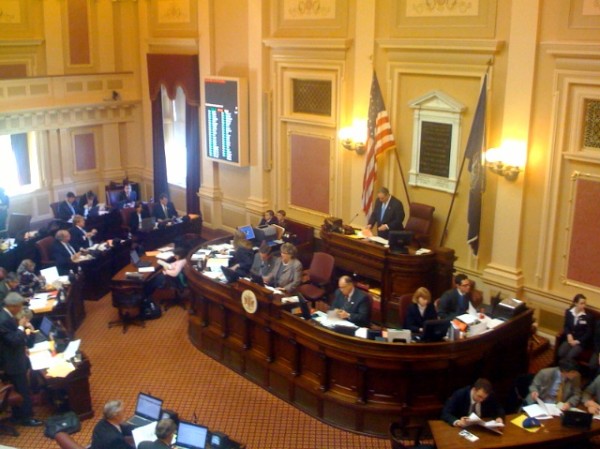On Nov. 8, students from the College of William and Mary voting in Williamsburg will have the option of voting for three candidates for the Virginia Senate. Their platforms, while united on some prioritized issues such as education and transportation, differ in scope and focus.
These candidates, Democrat Monty Mason ’89, Republican Thomas Holston and independent candidate representing the Constitution Party John Bloom are running to fill an empty seat in the state senate left by Senator John Miller, who died in April 2016.
Education
Higher education funding and increasing resources for pre-kindergarten and early elementary school students have been identified as some of the top issues in this race. Bloom said that while he does not support free or reduced-tuition community college programs, he would like to see tax credits given to students who are paying tuition installments over the course of the year. He said that he would prefer this to free tuition because free tuition would mean that other citizens would pay higher taxes.
Mason said that he appreciates the work Virginia Governor Terry McAuliffe has already done to support community colleges, including lobbying to bring an accreditation program for Cybersecurity Excellence to Thomas Nelson Community College. While Mason does not support lowering community college tuition or offering free community college programs, he said he likes the idea of approaches to tuition like that of the William and Mary Promise, which sets the tuition in-state students pay at admission levels.
Although Holston said he was not sure of how to implement this policy, he would like to pursue free community college in Virginia as an option for some students.
While Holston and Bloom did not identify increasing resources for pre-kindergarten students as a priority issue, Mason has been advocating for more public preschool resources since his time running for the Virginia House of Delegates. Mason also has identified student homelessness — which includes students who are frequently transitioning between temporary housing options — as an issue that he thinks contributes to a large learning gap in elementary schools. To address this, Mason said he would like to have the Virginia General Assembly identify early education as a priority. Specifically, he would like to change the language in the budget for preschool initiatives to identify more students as “at-risk.”
Transportation
When Mason was running for District 93’s seat in the House of Delegates last fall, the third phase of Interstate 64 had not been funded, but the last session of the General Assembly allocated funding to complete the project. However, Mason said that there needs to be continued push to fund the expansion of I-64 for the 29 miles between state Route 199 and Bottoms Bridge. While Bloom advocates for increasing the number of tolls between Williamsburg and Norfolk to raise state revenue, particularly if more tunnels are added to I-64, Mason said that he would prefer tolls on rapid transit lanes or specific tolls during high-capacity times.
Holston has also addressed congestion in I-64 as a priority issue and would like to focus on the Hampton Roads Bridge-Tunnel. He said that he would prefer a bridge to a tunnel, but that the level of congestion needs to be changed.
Marijuana Legalization
Holston did not address the issue of legalizing or criminalizing marijuana, but Bloom and Mason both voiced their support for legalizing the drug to an extent. Bloom said that he currently supports decriminalizing it, because he does not want young adults charged with possession to serve jail time. Mason said he has supported legislation that allowed a teenager to access medicinal marijuana oils to help with chronic seizures. However, Mason said that because of the composition of the General Assembly, it would not be pragmatic to draft legislation to legalize or decriminalize marijuana. He said that this is something he has learned while working in Richmond.
Ballot Reform Measures
Bloom has identified restructuring ballot-access measures to allow more third party candidates automatically onto the ballot for state elections. Part of his campaign is also advocating for Darrell Castle, the Constitution Party’s presidential candidate. He said that he would like to see more equality in how Democrats, Republicans and third-party candidates get on the ballot, because he said that the process of collecting signatures for third parties is too difficult and keeps third parties from getting on the ballot.
While Holston does not address this issue in his platform, Mason said that it is admirable that Bloom is running his campaign to draw attention to an issue he cares about. However, Mason said he does not support changing the process because he sees the two established parties as being more organized and having more resources. He said it is hard for third parties to start new during a presidential election season and get the momentum necessary to make the ballot in one state or all states.

